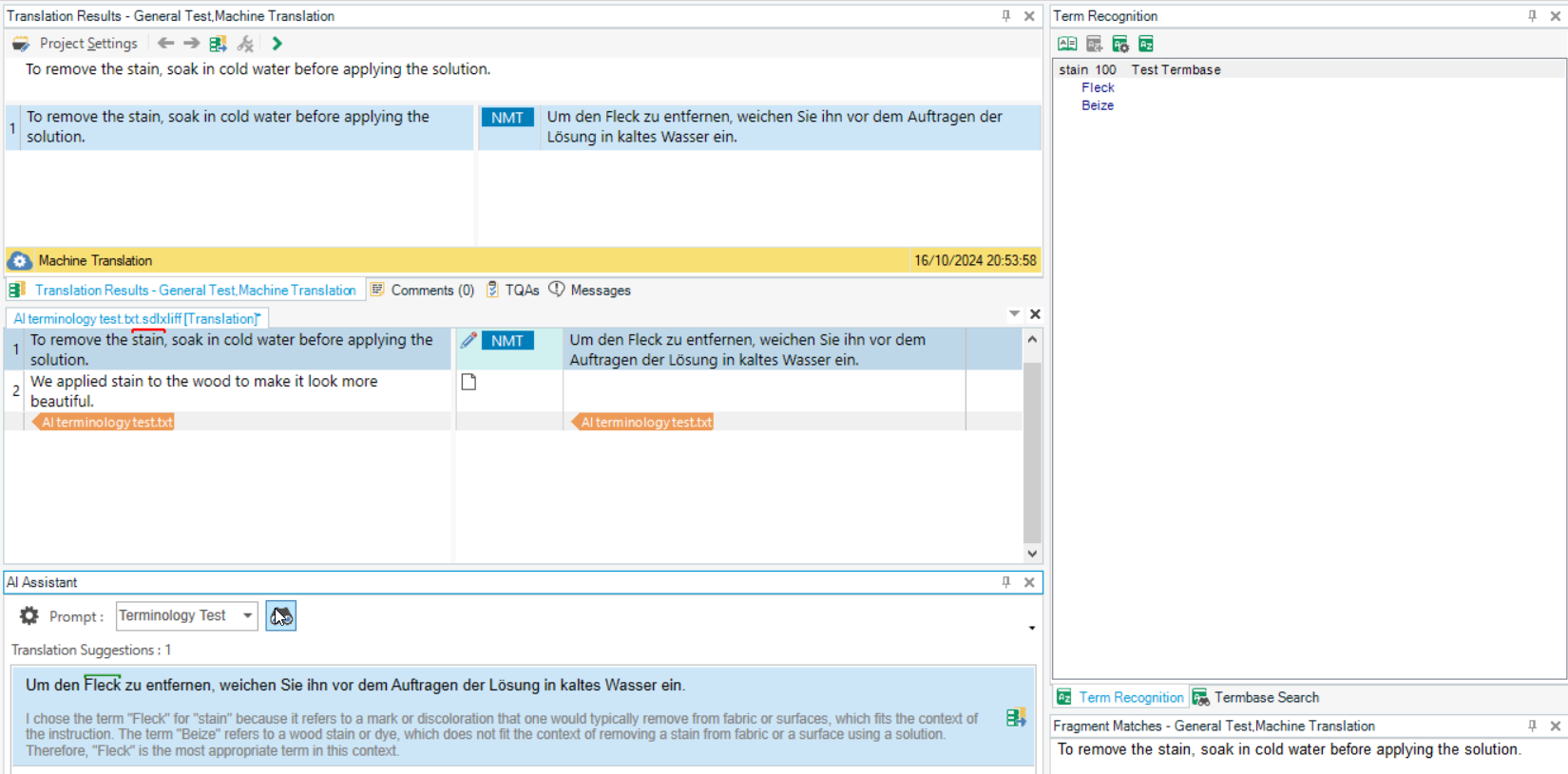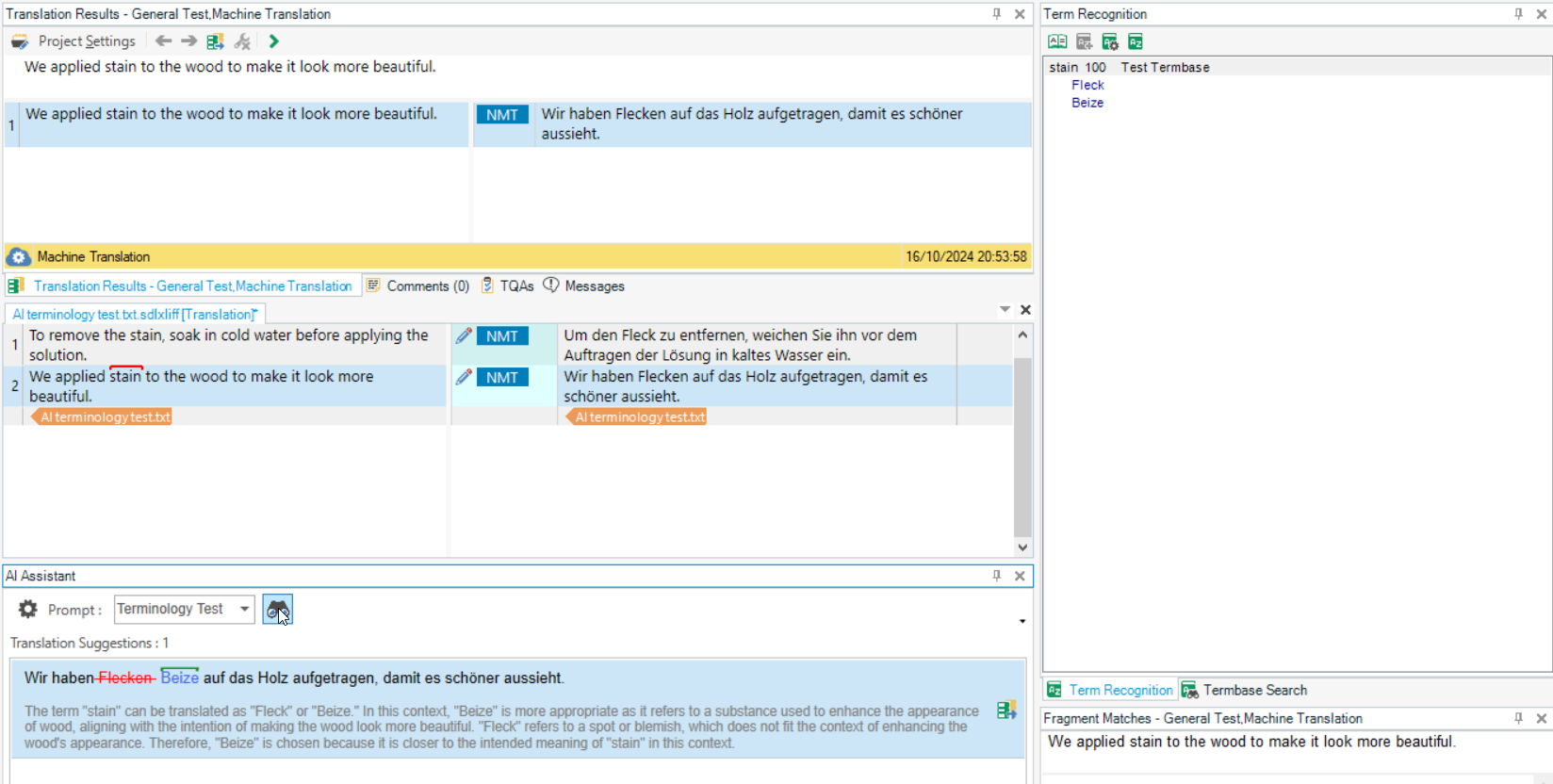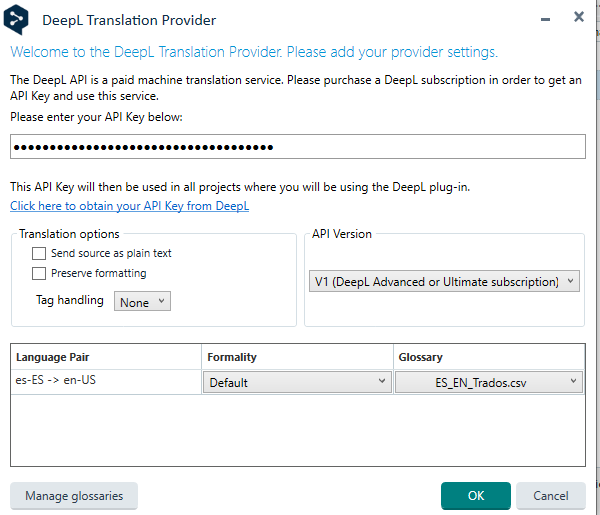Dear Community!
We are currently analyzing the upgrade of current 2022 licenses to 2024, therefore studying all the novelties offered by this new version.
According to the information available, MT results can be modified by the terminology available in the Multiterm dictionary, isn´t it?
So as far as I can understand, the working principle is the same as with the DeepL glossaries (which I personally prefer to call "MT correction lists", cause they are 100% personalized to the type of text translated and provide almost no information for a better understanding of a specific term). Or are there other benefits that I don´t see?
However, the "handicap" I see is how the MT provider will "choose" the term from the list of terms available in the Multiterm database?
Practical example 1:
PLANO (Spanish term): in our corporate MDB we have three entries for "plano": 1) wheel tread defect 2) plane (vertical, horizontal...) and 3 ) drawing.
In this particular case, which term would the AI Assistant 2024 be aware????
Practical case 2:
Bocina de agudos: this entry has 3 synonym terms in English: high-pitch horn, high-pitched horn and whistle.
Which synonym of the three would the AI Assistant use in this case?
DeepL glossaries are more specific, i.e. they allow to correct a specific word with another specific word, only one.
However, if the Multiterm glossary is applied in Trados 2024 following the same principle...how will the algorythm work? And then, can Multiterm termonology be used on the MT provided by DeepL? Or is is mandatory to use other MT resources (Azure, Open Ai, etc?)
Thanks in advance!


 Translate
Translate







